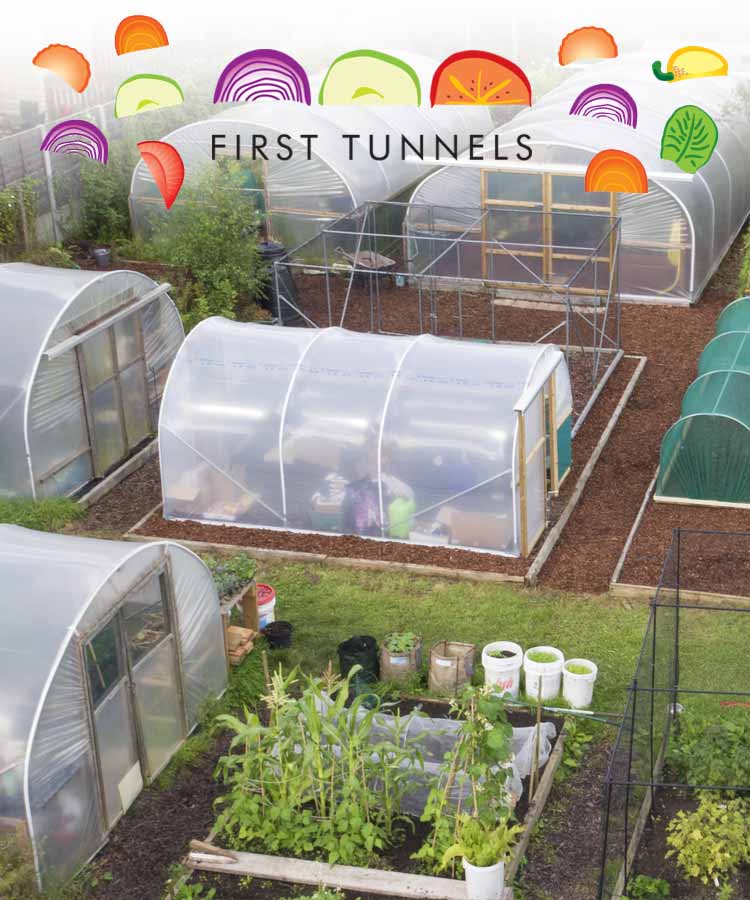Some people use their polytunnel for housing chickens during the colder months. But a polytunnel can be used in multiple ways to help chicken owners, not only during the winter but all year round. One thing you can think about is how your polytunnel can be used to grow food – not only for you and your family and friends but for your chickens too. Growing at least a portion of the food your chickens need – in addition to free-range forage – will save you money and make keeping poultry a much more affordable proposition.
When creating a diet for your chickens, it is important to make sure that they are getting enough protein, as well as getting all the other nutrients that they need. You may still choose to feed a commercial chicken feed, but you can at least supplement that with fresh greens and other goodies from your polytunnel. Chickens love green vegetables such as brassicas, peas and beans and will eat scraps from your compost as well as any stumps or damaged outer leaves that you want to get rid of from your polytunnel.
Growing food for your chickens, however, more imagination is required to think about how you can optimise the space in your polytunnel while also providing sustenance for your chickens. Some weeds may be great food for chickens – consider allowing some weeds to gain ground, so you can harvest them as you would any other crop. Some slower growing crops will not suffer when some weeds are allowed to grow or even cultivated in the short term. Some, like chickweed, for example, can be eaten by chickens and by us humans and tastes great. Chickweed can also be a reasonable companion plant for some taller crops, as it will spread and create a ground cover which can keep in the moisture in the soil. Other weeds names also give away the fact that they are great food for chickens – fat hen is one other notable example.
In addition to growing the green stuff, a polytunnel also offers the chance to breed more meaty treats for your chickens without having to do so in your home. A wormery will not only provide compost to help the plants in your polytunnel to grow, it could also be carefully cultivated to provide excess worms for the chickens to eat. Of course, chickens will eat insects, slugs and other pests from your polytunnel or garden, helping to protect your plants, but should you wish to give chickens a more steady supply of protein, you could also consider breeding mealworms as chicken food and this will not take up much room in your polytunnel, so you will still have space left to sow seeds and grow whatever else you would like to grow.
Most domestic chicken set-ups are unlikely to be able to grow all the grains etc. needed to feed chickens year round, but a polytunnel could certainly cut costs considerably, and help make sure your chickens have the healthy and varied diet that they need to thrive.
We’d like to share Richard Perkins video - It’s about polytunnels in a climate where deep snow and long dark winters are the norm, Richard is a regenerative farmer, that’s farming that actually improves the land and the environment. Not just sustainable but farming that manages and improves the land.
